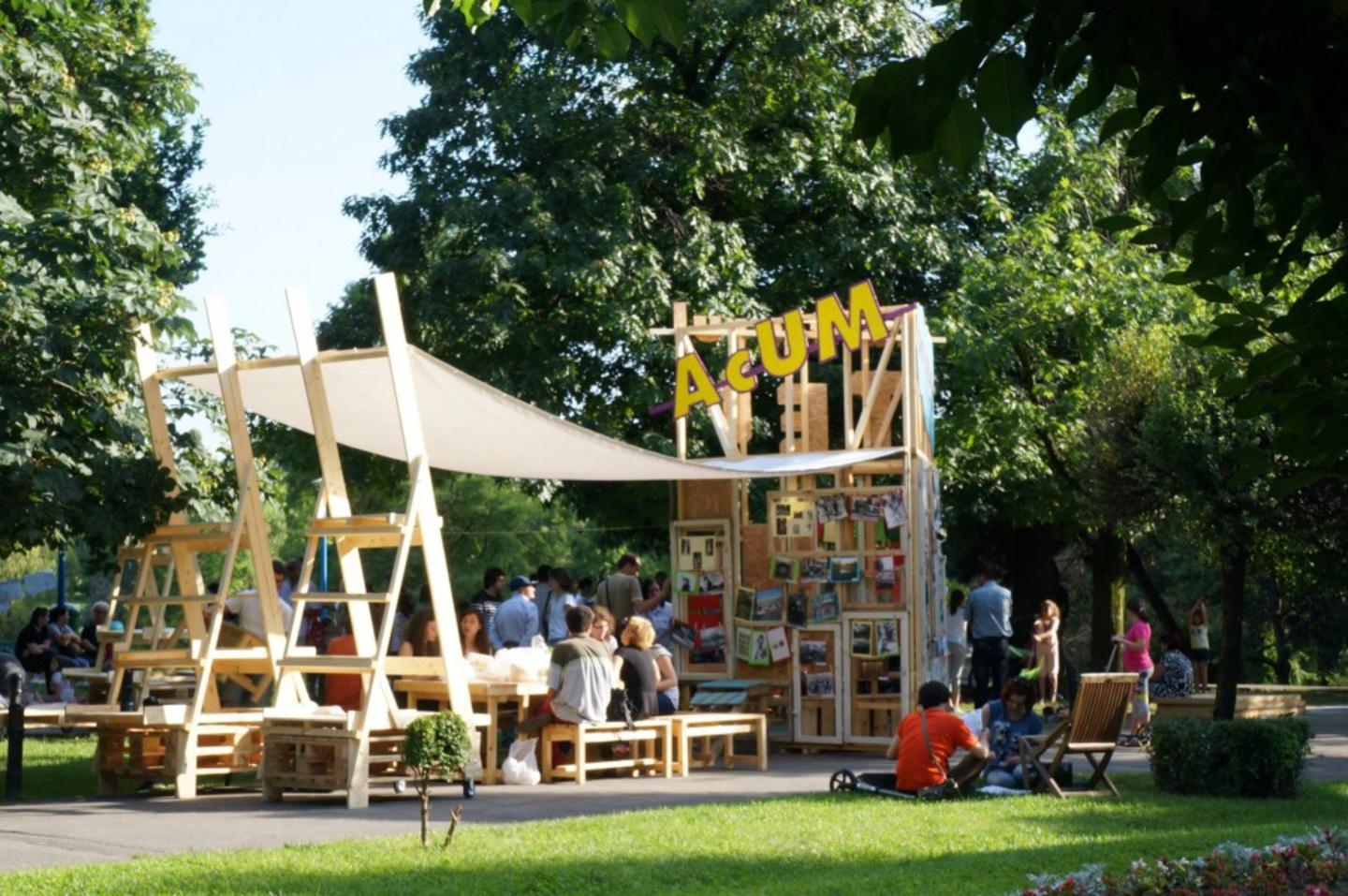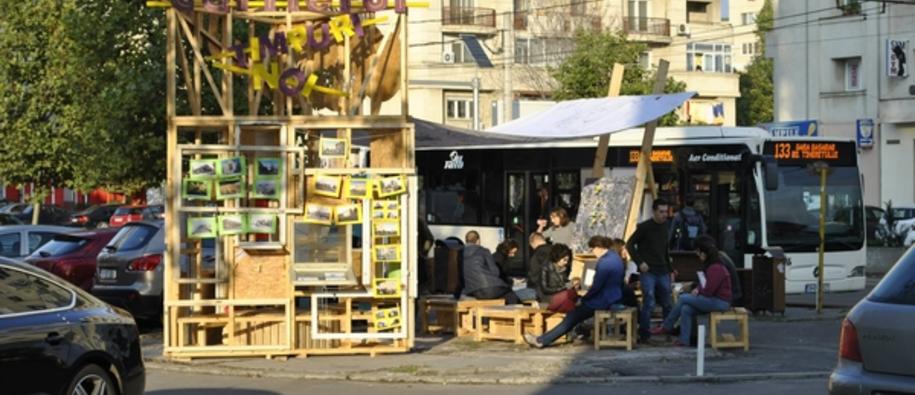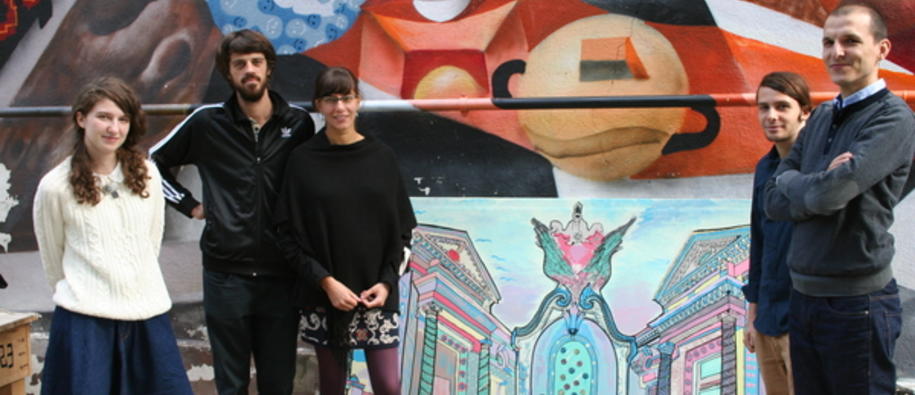Indifference and lack of civic responsibility towards public spaces are nationwide problems in Romania. Ultimately, this leads to degradation of public spaces, lower quality of life and a weakened sense of community.
“People are quite passive and not used to participate in public activities in their neighbourhood. If nothing is happening and no one gets engaged, the local authorities from the municipality will not get involved either. Therefore it is important to create a tradition of participation,” Miruna explains.
This is why the Komunitas Association receives funding from Iceland, Liechtenstein and Norway through the NGO fund in Romania for the project ‘Urban Spaces in Action’. The project involves three districts in Bucharest – Tei, Tineretului and Timpuri Noi, and combines insight from urban planning, urban anthropology, architecture and urban education for children and teenagers.
Participation, education and research
Several events are organised to promote more active use of public spaces in the three districts. One of these events was the ‘Tei Day’ on 28 June this year. Several hundred people attended, many of them children. The event included a photo exhibition with snapshots from the history of the Tei district, a music area, an outdoor cinema and workshops with paintings and the making of kites and paper airplanes.
“Even quite small events and activities have a significant effect on how people relate to and re-engage with urban public spaces,” Miruna says.
The ‘Tei Day’ also allowed a team of three researchers to conduct research by handing out questionnaires and interview participants. Urban research and education activities are important parts of the project; seventy five children from schools in the three districts will receive civic education and teaching on urban activities. The research will help the understanding of how people use and relate to public spaces. Miruna underlines the advantages of having an interdisciplinary approach:
“The urban socio-anthropologic research is based on our activities in the districts of Tei, Tineretului and Timpuri Noi. Since there are many activities going on in these districts, it gives valuable insights. It also combines interesting aspects from social sciences and architecture.”
The Komunitas Association will also publish a booklet, where they provide information on how NGOs and young people can use these interdisciplinary methods in their activities.
“It is very important for us to be visible and to transmit ideas. We hope this can help to inspire other NGOs as well”, Miruna says.
About the project
The project receives € 75 000 from Iceland, Liechtenstein and Norway through the NGO fund in Romania. The project started May 2014 and will end October 2015 and is implemented in partnership with Artwe, Bucharest Sport and Youth Department, and the tranzit.ro Association.


